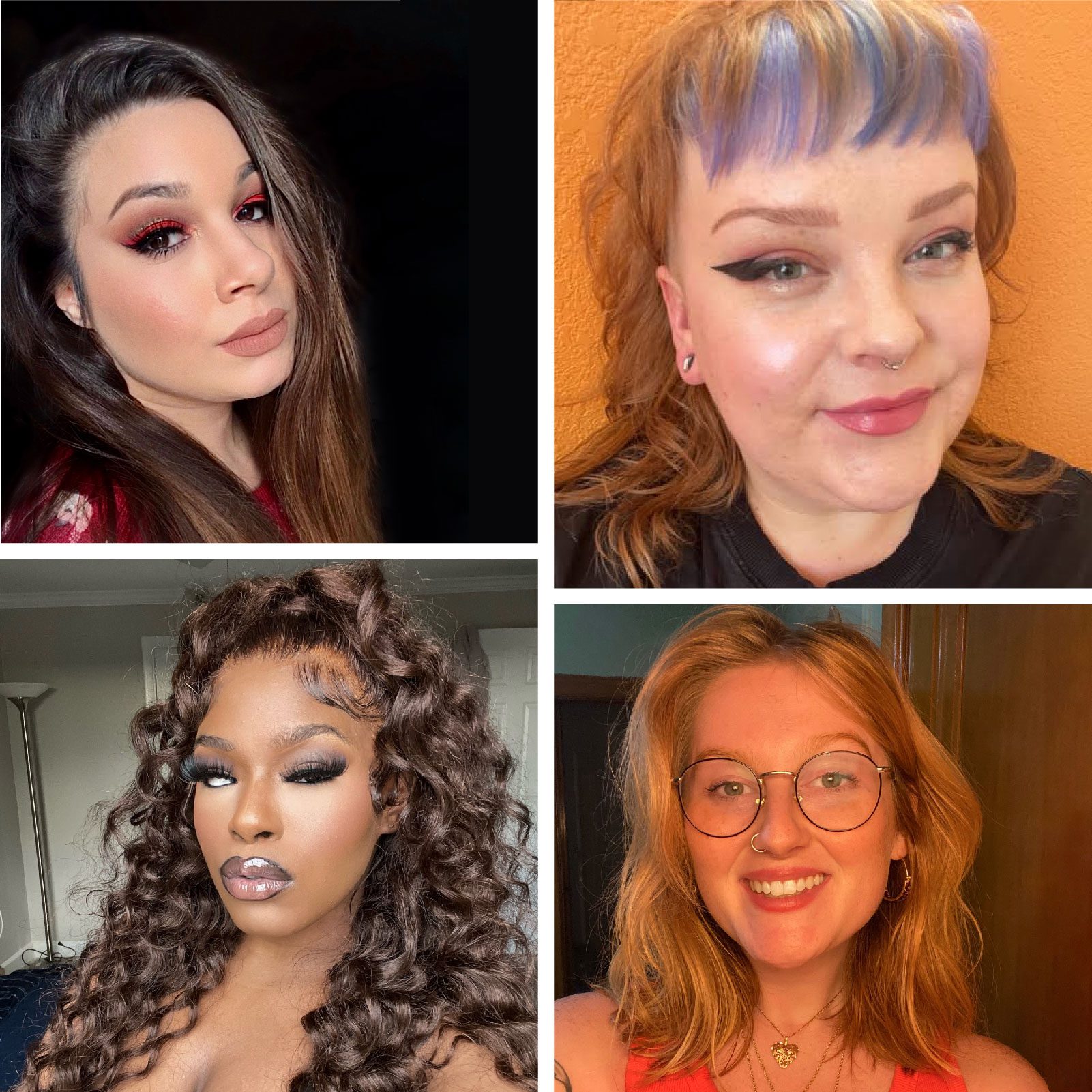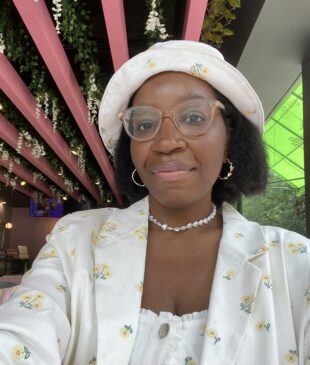Even with all the progress that the professional beauty industry is making in regards to diversity and inclusion, there are still groups of people that are largely underrepresented—such as the disabled community.
For those who aren’t aware, disability includes physical impairments, cognitive or intellectual impairments, sensory impairments, neurodiversity, mental illness, and chronic illness. Despite the fact that there are about 61 million adults in the U.S. alone living with a disability (that’s 26% of the total population or 1 in 4 adults), you wouldn’t even know it given the lack of representation in our industry. Much like everywhere else in society (from media and entertainment to the workforce), discrimination towards people who have disabilities, or ableism, runs rampant in the professional beauty world too.
In our industry, ableism is evident when hair and beauty brands fail to create adaptive products and tools that can be used by professionals and everyday consumers with shaky hands, Parkinson’s disease, multiple sclerosis, or any other disability. It’s evident when many salon staff lack the proper training to accommodate clients with a disability, let alone provide support to disabled stylists and artists on their own team. And it’s especially evident when many salon or beauty spaces cannot accommodate disabled staff or clients due to a lack of an accessible entrance, handrails, ramps, easy-to-read signage, and widened doorways and aisles. With all that said, there is still so much work to be done towards making people with disabilities feel seen, heard, and respected as human beings, in the professional beauty industry and beyond.
With July being Disability Pride Month—a month-long celebration focused on honoring the history, experience, achievements, and struggles of the disabled community—comes the opportunity for non-disabled people to educate themselves on issues that affect disabled people and most importantly, to listen to their voices, which are so often rarely acknowledged. To honor this time, The Tease spoke to four hair and beauty pros with disabilities about their past and current experiences working in the professional beauty industry.
Ahead, hear straight from these four incredible hairstylists and makeup artists about how they really feel about the word “disabled,” the challenges they face when working with clients, and their thoughts on the industry’s inclusivity efforts.
Stephanie Antillon, (@makeupbysostephy)
Makeup Artist
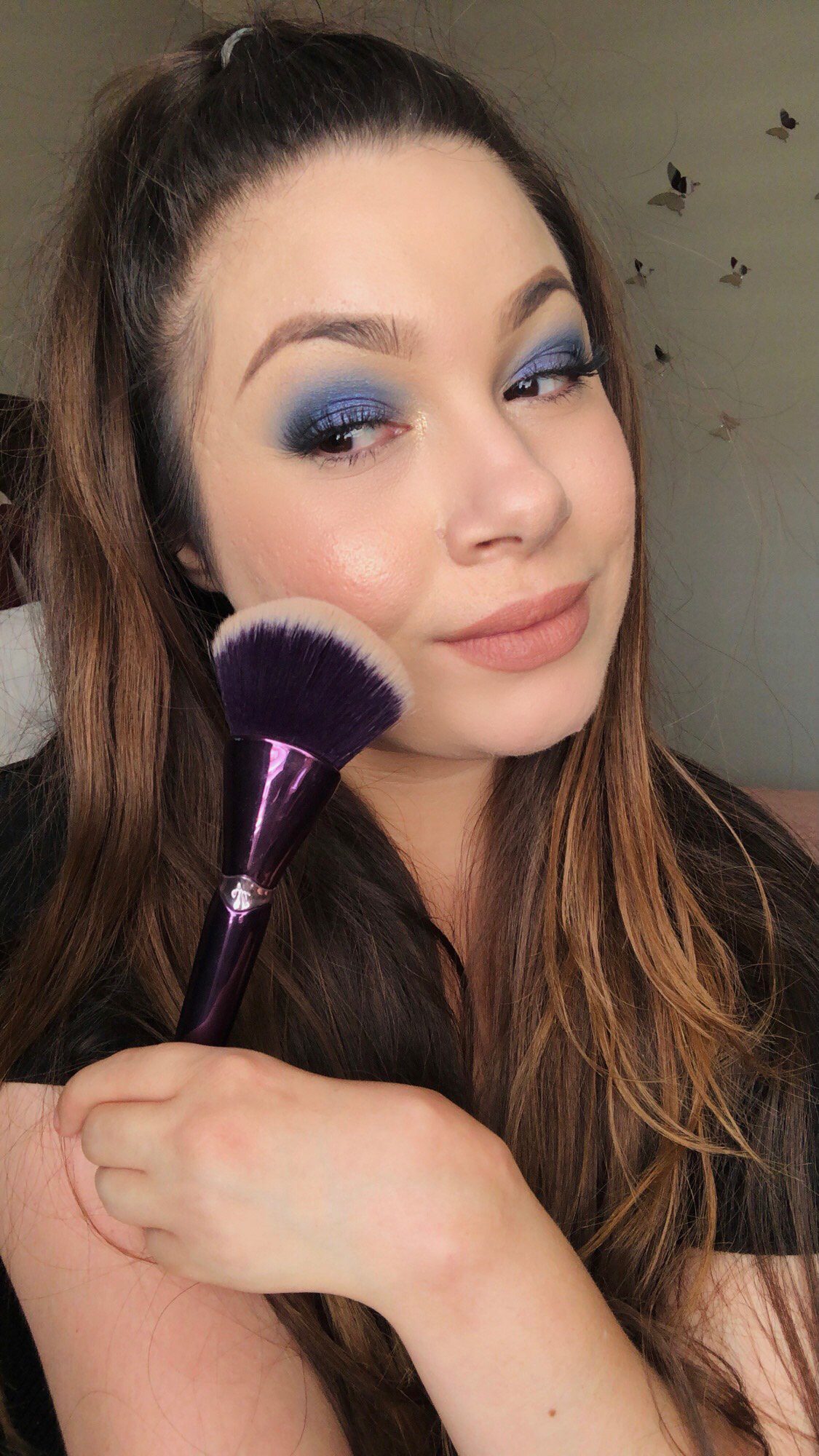
Can you tell us a little bit about your disability?
Stephanie Antillon: My condition is called arthrogryposis multiplex congenita, or AMC for short. It involves the contractures of two or more joints, and individuals may be affected on one or both extremities. My upper extremities only affect me, so both arms are fixed at a certain angle. AMC affects my mobility and reachability. I try to become as independent as possible, yet I still need assistance with some tasks. I am confident in asking for help when needed. I am always on the hunt to look for different strategies and tools that would help me become more independent. I’ve been in the beauty industry for 13 years now, and I keep learning new techniques and finding products that make doing makeup easier. I’m also currently working towards my Masters in Clinical Marriage Family Therapy to be a resource for families and individuals who are disabled.
How do you feel about the word “disabled”? How would you describe your relationship to it? Do you prefer the use of another word instead?
Antillon: I do not take any offense to the word “disabled.” It explains exactly what it is. Being disabled does not define who I am. It simply explains why I do specific tasks differently than others. There are various ways to put on or fold a shirt; some of us do it differently than others, while others need assistance. There is no right or wrong way.
In what ways has living with a disability impacted your career as a makeup artist?
Antillon: Living with AMC has impacted my career as a makeup artist by limiting my mobility and reachability. How I hold a brush differs from your standard, typical way of holding one. I require clients to sit in a lower chair to accomplish a glam session. Otherwise, I need help to be able to reach the face of my clients. I sometimes ask my clients to turn in a specific way to be able to reach both sides of their face since I primarily work on the client’s right side. I only use my right arm for makeup application. I use my left arm to transfer brushes or squeeze products out of tubes.
Are there any ways in which living with a disability has actually helped you in your beauty career?
Antillon: I believe that it may have helped me in my beauty career, but also hindered it. When brands want to work with me to promote inclusion, I would gladly do it, as my goal is to open up doors to inclusivity to others who would benefit from seeing someone they can relate to. I know that when brands showcase individuals who are disabled on their platform, it influences my interest in using the products because I am always looking for something that will make my job as a makeup artist and a consumer more accessible. I did mention hinder, because at first glance, people judge a book by its cover and just because I look different physically doesn’t mean that I’m unable to perform my job as an artist effectively. Yes, I may hold my tools differently than your typical influencer/makeup artist, but I try my hardest to achieve the look my clients desire.
What do you think is unique about your experience as a beauty professional living with a disability?
Antillon: Honestly, I think my condition alone is unique. My condition occurs once in every 3,000 live births, and I haven’t encountered many people who have my condition, let alone in the beauty industry. Social media has brought me closer to the AMC community, which has introduced me to families who also have individuals with my diagnosis. And those of who are affected with arthrogryposis are affected differently; therefore, we do things differently. However, we do learn from one another, which is great!
Have you faced any stereotypic or discrimination related to living with a disability?
Antillon: Growing up, I faced stereotyping and discrimination based on my disability and being different. I learned to see past that. I believe in not having assumptions about individuals based on their appearance. It was and is not always easy looking different. The stares and whispers make it difficult to feel and be confident all the time. I believe in myself and what I am capable of.
Have you experienced challenges when working with clients related to your disability? And if so, how have you overcome them?
Antillon: The challenge I have experienced when working with clients due to my disability is having a low enough chair for me to be able to reach. Due to my lack of reachability and mobility, I struggle when I have to do glams on locations, and there is no low enough seating for my client. I always look for alternatives when available. I also work mainly with my right arm, so I tend to work on the right side of my client. When I need to reach the left side of their face, I tend to guide their face to turn to the right for me to reach their left side.
What do you think are some of the most significant issues facing the abilities community, both within and outside of the professional beauty industry?
Antillon: One issue facing the disability community is inclusion in all aspects of our life. Many who are disabled are wheelchair users. Many places still need some form of change, for example, having ramps or automatic doors for places we visit, such as restaurants, shopping centers, government buildings, and sports locations, amongst many others. When it comes to the beauty industry, there should be more adaptable tools for easier use. Different designs can be thought of that make an individual have an easier time holding a brush or perhaps, opening a tube.
In your view, what is necessary for the professional beauty industry to be inclusive of people of all abilities?
Antillon: As mentioned above, the beauty industry needs more inclusive tools to make individuals with different needs much more accessible. Creating lower portable chairs that can be lightweight and easily unfolded would be an excellent step for the beauty industry to adapt to be more accessible. Typically a makeup artist uses a director’s chair style to do their job. However, some of us have reachability and mobility limitations.
What do you want companies and/or salons to know about people living with disabilities applying for jobs in the industry?
Antillon: I would love for companies and/or salons to know that everyone works differently and that some individuals need accommodations. Being able to offer adaptable tools or provide alternative packaging may be beneficial to reach a more inclusive brand. I have encountered a few brands that will do their best to accommodate my needs as an artist. Always be bold and ask.
Lastly, what advice would you give to someone living with a disability who is looking to start their career in this industry?
Antillon: One piece of advice I would give to someone looking to start a career in the beauty industry who is disabled is to know what aspects during a glam session you need help with. Finding the proper tools and accommodations will ultimately lead you to be a more successful and fulfilled artist. There is no one way to do things; always find what works best [for you.] Practicing with anyone willing to lend you their time and canvas (their face) will lead you to become a better artist. Never give up. Practice, practice, practice!
Demi Rivera, (@talking_hairs)
Hairstylist

Can you tell us a little bit about your disability?
Demi Rivera: I was diagnosed with autism in 2019 at the age of 25. I was also later given an ADHD (attention-deficit/hyperactivity disorder) diagnosis, and I am working with doctors and genetic counselors to get a medical diagnosis for Ehlers-Danlos syndrome. I was diagnosed late, which happens to many women and people assigned female at birth. Autism affects a lot of different aspects of my life, but Ehlers-Danlos mainly affects my joints and body.
How do you feel about the word “disabled”? How would you describe your relationship to it? Do you prefer the use of another word instead?
Rivera: The word “disabled” is how I prefer to be referred to. Disabled people cannot separate themselves from their disability. Often the terms “differently abled” or “special needs” are considered to be offensive to some. I am very comfortable using the term to both describe my sensory and physical disabilities.
In what ways has living with a disability impacted your career as a hairstylist?
Rivera: It has impacted it greatly in many ways. Hairstyling is already an incredibly physically demanding job, as well as socially demanding. It also places a lot of stress on sensory and tactile input in the body. Since I was diagnosed later in life, I didn’t recognize it was autism until later on. I struggled massively in the past when it came to getting along with coworkers, salon owners, and sometimes my own clients. I felt like I was misunderstood, [that] something was different about me. I was struggling with my mental health, often leaving work crying. One salon owner, who had caused me to have an autism meltdown in the break room, told me I should just “quit doing hair.”
After being diagnosed, I can approach those discomforts with a different lens. Some things that still stay the same are my usual lack of eye contact with clients, and on occasion, days that I am non-speaking. I moved out onto my own as an independent stylist in January of 2022, and have been much happier as a result. I have my own studio, where I can turn the lights off and take sensory breaks when needed. I have garnered a clientele of similar people to myself. When I have rough days, or when they do, we understand each other. I am not simply understanding of autistic people, but I am one myself. Lived experience cannot be replaced.
On a physical level, I am not able to work as many hours as my colleagues any more. I typically have the most pain in my knees, hands, and spine. I do have an ergonomic stool I make use of at the salon when I need it. Usually, a long weekend at the salon will require me to use my next day off to rest and recover. My body requires a lot of work, such as massage, physical therapy, and stretching as well as pain management, through the use of hot baths and topical pain products.
Are there any ways in which living with a disability has actually helped you in your hair career?
Rivera: My professional advantages of my disability include an extreme eye for details, thoroughness, and doing the “right thing” by all of my clients. I am able to provide a catered experience for my clients who have different needs than neurotypical clients. I have a sharp memory, and I am also able to notice things or patterns other people can’t. There are some autistics who can see more of the color spectrum as well. I’m able to relate to my clients on many levels, especially when I meet someone with EDS. A good majority of my clients are autistic/ADHD with another disability, and are typically LGBTQIA+.
I sometimes feel I have an advantage because I have a photographic memory and a strong ability to synthesize imagery in my head. This often helps when I am picturing what a color combination or cut shape will look like on someone before doing it.
What do you think is unique about your experience as a hair professional living with a disability?
Rivera: My experience is unique because oftentimes, I feel like I have to work twice as hard to be taken seriously in the industry, and twice as hard to get the work done. My body is in pain a good 75% of the time, although I am used to it to some degree. Sensory overwhelm, social overstimulation, and body posture can become too much for me. My experience being autistic in this career field has felt unprecedented. I had never met someone with my disability (that they were aware of at the time) in my career. It seemed almost impossible to do the job when I had such a struggle around socializing and sensory input. I am grateful I can make use of things like earplugs and fluorescent light filters to control my environment and make it easier. Most hairstylists are very extroverted, outgoing, vocally bubbly, and social. In the past, my shyness and avoidance around socializing was discouraged, but now that I am openly accepting myself, I have let go of the cares surrounding what people think of me.
Have you faced any stereotyping or discrimination related to living with a disability?
Rivera: Absolutely. I wasn’t diagnosed with autism until almost 7 years into my hair career. Both stereotyping and discrimination are things I have experienced from customers, coworkers, salon staff, managers, and owners. A few salon owners I worked for would regularly make me cry (at the time I didn’t know some of these were autistic meltdowns) for things I realize now are autistic traits. Nowadays, I surround myself with clients and people who are like me and understand me. Occasionally, I still get some weird questions, or a person in my chair who doesn’t know I’m autistic. It hasn’t happened in a while, but I had a few people in years past who told me they either didn’t believe I was autistic or they didn’t feel comfortable having an autistic person do their hair. People make a lot of assumptions about me because I have tattoos, piercings, and funky hair. Somehow having those things are for neurotypicals only? Ha!
Have you experienced challenges when working with clients related to your disability? And if so, how have you overcome them?
Rivera: My main ongoing challenges are mostly physical. I try to use my rolling saddle stool to my advantage, as well as using color boards for anything that will overly strain my hands. My clients often remind me to sit down and take a break while their color processes. These days, related to autism and ADHD, my continuing struggles are typically related to demand avoidance and tasks. I try to make use of sticky notes, and staying organized throughout an appointment really helps me stay on track. If I go non-speaking, I will use text-to-speech on my phone. If I am in sensory overload from noise, I wear earplugs. My clients are all very understanding and flexible with what I need, so that I can provide the best services to them.
What do you think are some of the biggest issues facing the disabled community, both within and outside of the professional beauty industry?
Rivera: I believe the United States can do better for their disabled citizens. The Americans with Disabilities Act was not signed into law until 1990, and it is still incredibly hard to get access to some things for people. We often want to be included in many things in life, and sometimes that includes things like laughing at ourselves. I personally find humor to be a great equalizer. I think our country could do more to help those with sensory issues. The hyper-individualism we have in the USA often puts people’s desires over the comfort of their neighbors. For example, where I live in Colorado is very populated with people that shoot off aerial fireworks for almost a week before and after Independence Day. Myself, any other neurodivergent neighbors, and my combat veteran neighbors are often living in fight or flight mode late into the night because of things like this. We need more people to be community-minded, and a little less selfish.
Within the beauty industry, I feel there is a lot of in-fighting between disabled and abled professionals. I was recently in a heated argument with another stylist who suggested that the use of color boards is “lazy” and “unprofessional.” I reminded this person that not all of us are without pain or unsteadiness. I think we need to normalize things like mobility aids, extended rest/breaks, tools and gadgets, and we need companies who we feel will listen to us. We need to throw out the old fashioned notion that hairstylists must be on their feet eight hours a day to produce results.
In your view, what is necessary for the professional beauty industry to be inclusive for people of all abilities?
Rivera: I think it is necessary for companies and individuals to have more disability diversity in advertising, content creation, and support. I think makeup companies creating tools for people who have mobility and motor disorders would be cool to see. Personally, I believe beauty companies should invest more in their brand ambassadors, employees, and affiliates who are disabled and are having to put in extra work every day. I think the beauty industry as a whole really needs to be given training on how to support their fellow workers, and how to accommodate their disabled clients as well. Accommodating neurodivergent people specifically, is often a very easy solution. For example, more salons could designate sensory friendly hours for service, where they lower the music volume and limit the amount of people inside. I would like to see more salons with wheelchair accessibility, as well as things like handrails, comfortable seating, biohazard sharps containers, and other things that are necessary for anyone with a disability to feel they can be in space fully.
What do you want companies and/or salons to know about people living with disabilities applying for jobs in the industry?
Rivera: Disabilities are not always drawbacks for the hiring party. Much like my disability, I’ve been able to find new coping mechanisms and ways to navigate the world without the same neurology as my counterparts. People with disabilities will adapt and often have many useful tips and strategies for working, which may also benefit the rest of your team. Having disabled stylists means you have a large variety of people with knowledge and experience in things that others do not. This better helps us take care of our clients needs when we are met with new challenges or situations. In short, hiring disabled people will create depth and sincerity, as well as strong diversity in your company. Specific to autistic people, I find that we are great at brainstorming. We can often come up with solutions for many problems, using our unique perspective.
Lastly, what advice would you give to someone living with a disability who is looking to start their career in this industry?
Rivera: Go for it. Don’t let anyone’s bullshit get in your way. If you know in your heart you are meant to be in this field, ignore the haters. They will make you uncomfortable. You have to plan on that. Knowing that it is a difficult but greatly rewarding job is part of it. There often are no easy days, but the more difficult work days are usually worth it. Don’t let anyone with an experience or perspective vastly different from yours, dictate what you do. Allow yourself to take up space and have a voice.
Talya Reynolds, (@pinkbarbie_x3)
Traveling Makeup Artist
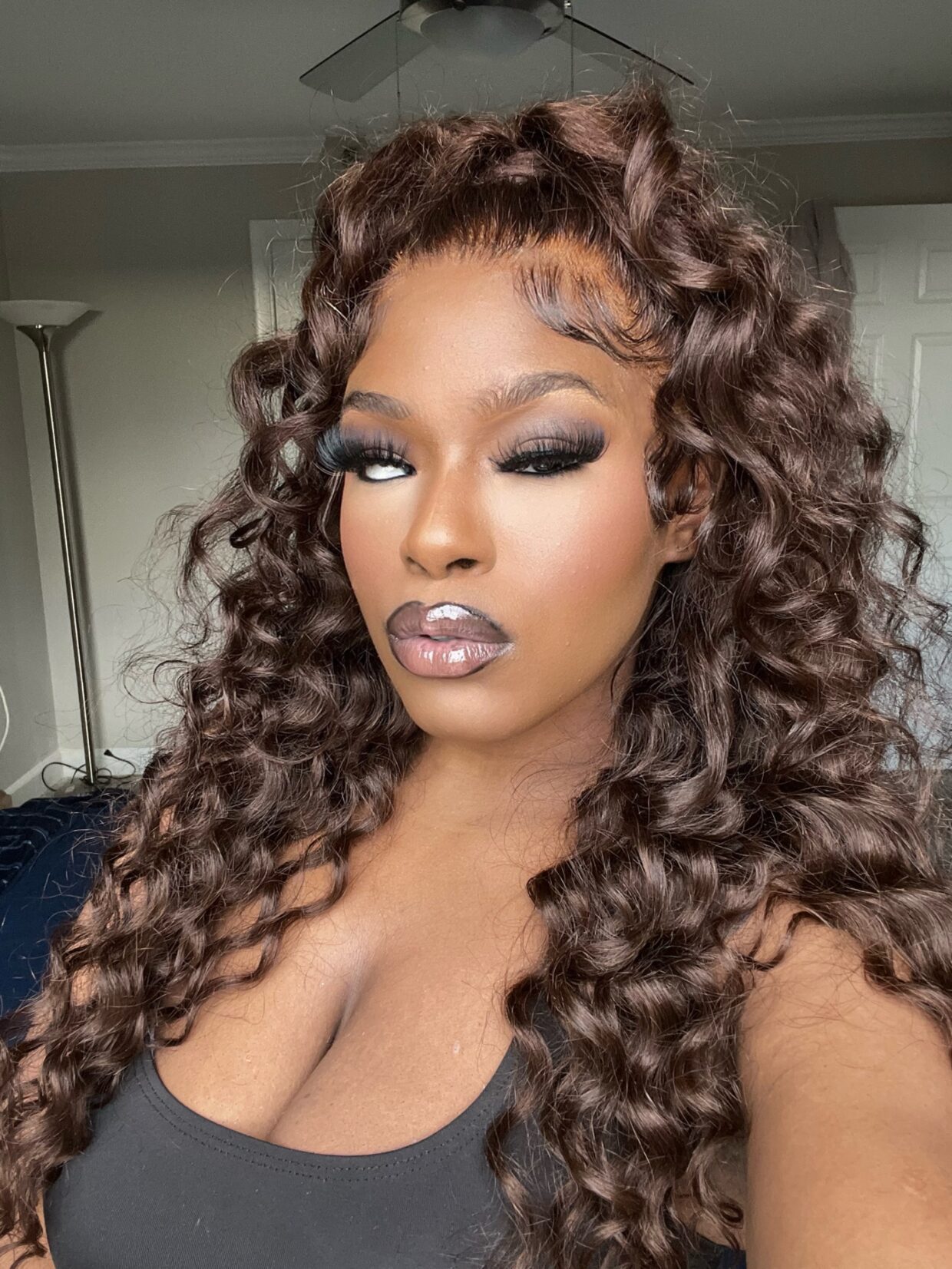
Can you tell us a little bit about your disability?
Talya Reynolds: I have strabismus and coloboma which causes my left eye to cross, and the iris and pupil is smaller, causing me not to be able to see out of that eye.
How do you feel about the word “disabled”? How would you describe your relationship to it? Do you prefer the use of another word instead?
Reynolds: Hearing the word “disabled”, it makes me feel like I am limited. My relationship to it is that I am a woman with a disability and legally blind, but I don’t let it define me.
In what ways has living with a disability impacted your career as a makeup artist?
Reynolds: As far as myself, doing certain eye looks is harder when I only have one eye with vision. So doing stuff like eyeshadow is always a challenge because when I would go to do the right eye I’d have to close it.
What do you think is unique about your experience as a beauty professional living with a disability?
Reynolds: [I think] what’s unique about it is the fact [that] I’m doing it.
Have you faced any stereotyping or discrimination related to living with a disability?
Reynolds: Yes, all the time, especially when I [first] started. I feel as though people would say mean things like if I can’t see then how can I possibly “beat a face.” I feel for my work I should’ve been acknowledged more but I’m a Black woman with a disability, which is not your standard beauty look.
Have you experienced challenges when working with clients related to your disability? And if so, how have you overcome them?
Reynolds: Not necessarily. I feel I had a lot of practice with family and friends so it came in handy to me.
What do you think are some of the biggest issues facing the abilities community, both within and outside of the professional beauty industry?
Reynolds: Not enough inclusivity.
In your view, what is necessary for the professional beauty industry to be inclusive for people of all abilities?
Reynolds: To start using different faces to represent all of us, because there is no one [single] look to beauty. Beauty is in the eye of the beholder.
What do you want companies and/or salons to know about people living with disabilities applying for jobs in the industry?
Reynolds: That we are just as useful and talented.
Lastly, what advice would you give to someone living with a disability who is looking to start their career in this industry?
Reynolds: My advice is to do it. Don’t let fear or the naysayers discourage you. If I can do it, so can you. The sky is the limit so reach it.
Monica Johnson, (@monicagracehair)
Hairstylist
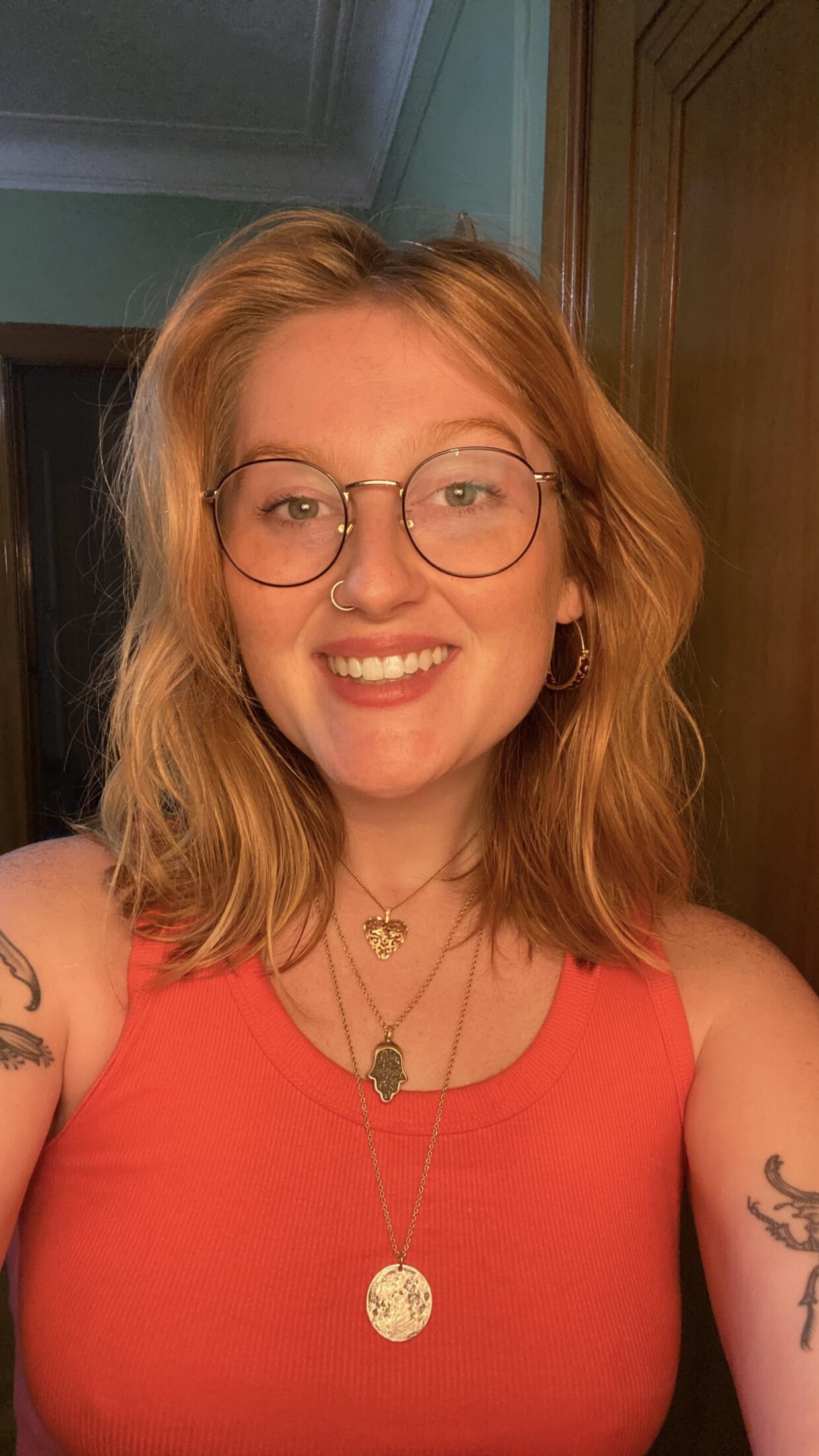
Can you tell us a little bit about your disability?
Monica Johnson: My first and main diagnosis is rheumatoid arthritis. RA is an inflammatory disorder that causes the body to attack its own tissues, including joints and internal organs. For me, personally, I have chronic pain and fatigue in my hands, knees, and hips.
How do you feel about the word “disabled”? How would you describe your relationship to it? Do you prefer the use of another word instead?
Johnson: Ever since my initial diagnosis of rheumatoid arthritis in 2017, I’ve struggled with using the word “disabled.” I’ve felt like it’s not my place to claim to be a part of the disabled community because some days I appear to be completely able-bodied. It wasn’t until recently that I’ve broken past that stigma in my own mind and fully immersed myself in the disabled community.
In what ways has living with disability impacted your career as a hairstylist?
Johnson: Unfortunately when I’m in a flare or my pain is immobilizing, I am completely unable to work. I’m usually not able to work as long of shifts as most and it definitely impacts my income at times, when I’m not able to work at all.
Are there any ways in which living with a disability has actually helped you in your hair career?
Johnson: Living with RA has expanded my well of empathy, patience, and understanding when it comes to my clients. Being open about my experience with chronic pain has created a safe space for my clients to share their own struggles, and I’m grateful to be able to provide that for them.
What do you think is unique about your experience as a hair professional living with a disability?
Johnson: I think that I am more cautious about the impact being a hairstylist has on your body and because of that, I have learned to draw boundaries for myself and adjust my view of the term “successful.” It’s really enabled me to create a healthy work/life balance that most people my age struggle with.
Have you faced any stereotyping or discrimination related to living with a disability?
Johnson: I began my career as a commission stylist working in salons that unfortunately did not care to be accommodating to my chronic pain. My early stages of getting diagnosed/ finding treatment coincided with my first years as a stylist, so as you can imagine juggling the two at a salon that wasn’t accommodating at all was a struggle. Luckily for me, it pushed me into becoming an independent stylist sooner than planned, which has been nothing short of life changing when it comes to working towards remission.
Have you experienced challenges when working with clients related to your disability? And if so, how have you overcome them?
Johnson: I have been in situations where I find myself halfway through an intensive color correction session and I am in so much pain that I wonder if I will be able to finish. Other times, I wake in the morning so stiff and aching that I unfortunately have to text my clients asking if they’re able to reschedule. I’m incredibly fortunate to have understanding clients that have never given me a hard time about needing to reschedule due to my pain.
What do you think are some of the biggest issues facing the abilities community, both within and outside of the professional beauty industry?
Johnson: I wholeheartedly believe that stigma both within the professional beauty industry, and society as a whole is the biggest obstacle. Every single industry has been positively impacted by a disabled person, from Stephen Hawking and Temple Grandin to Frida Kahlo and Maud Lewis. I think that the world would see greater progress if there weren’t biases against people with disabilities, and we need to start making space for them.
In your view, what is necessary for the professional beauty industry to be inclusive for people of all abilities?
Johnson: I would love to see more haircare product lines with more inclusive packaging. I, myself, struggle with many of the product bottles and lids on a daily basis. As for salons, education is key. Ensuring that your staff is up to date on how to best accommodate their disabled guests and/or coworkers is key to creating an inclusive environment.
What do you want companies and/or salons to know about people living with disabilities applying for jobs in the industry?
Johnson: I would like salons to know that giving the extra care and accommodations to your disabled employees will be an invaluable benefit to everyone involved. When you foster an accepting and encouraging community within your salon, you create opportunities to experience art in ways you haven’t seen before.
Lastly, what advice would you give to someone living with a disability who is looking to start their career in this industry?
Johnson: I would encourage them to speak up and advocate hard for equity in their workplace. In school, you’re taught one specific way to achieve a look and it’s important to remember that art has no specific formula and it can be created in many different ways.
These interviews have been edited for length and clarity.
